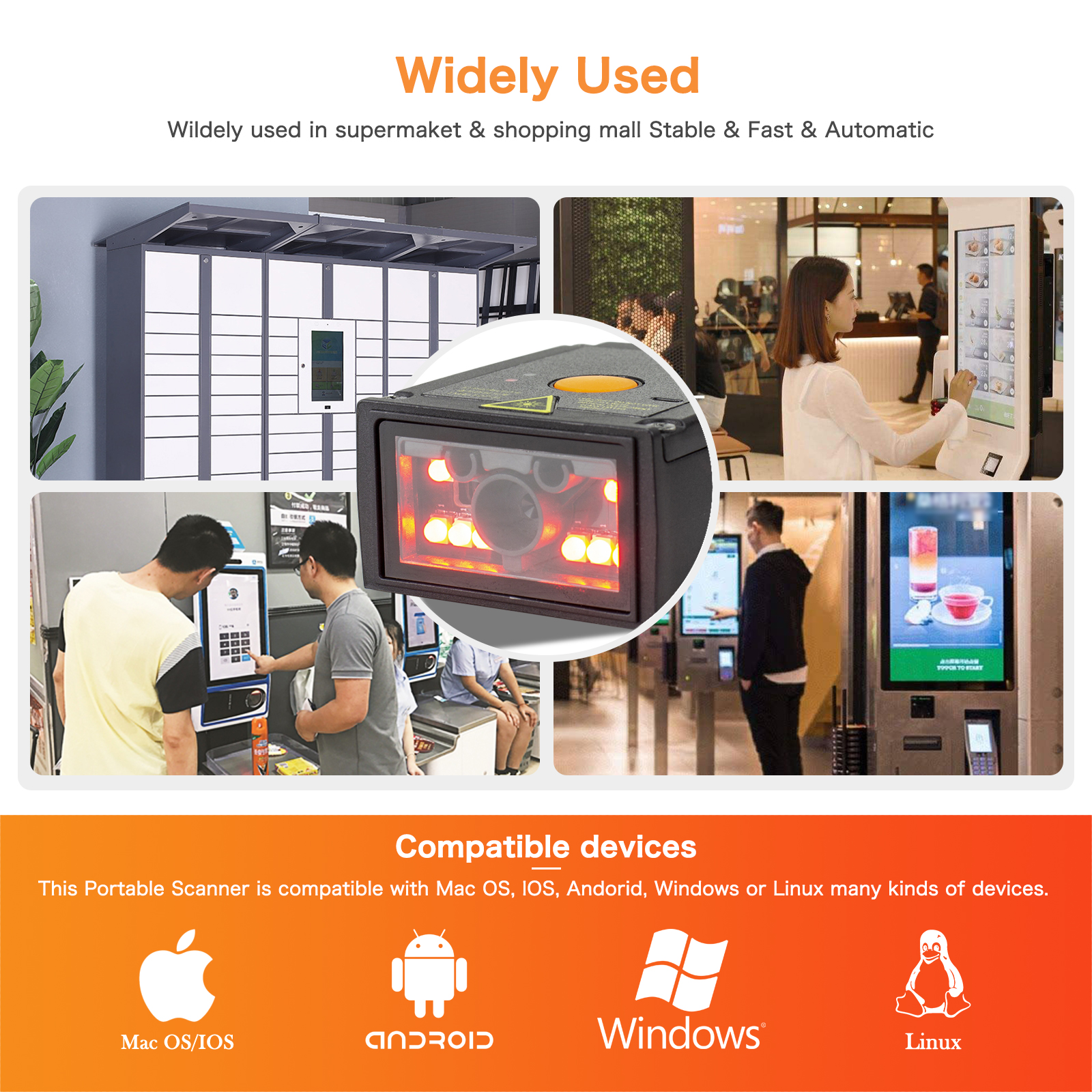With the accelerating pace of automation and digital transformation, fixed-mount barcode scanners have become critical equipment in retail, industrial, and logistics sectors. Choosing a scanner that's well-suited to the application can significantly improve operational efficiency and reduce manual intervention costs. However, the market is plagued by a wide range of product specifications and significant functional differences, necessitating a scientific framework for accurate selection.
Defining the core application scenario is the first step in product selection. Self-service checkout devices in retail scenarios require a compact size, POS-compatible interfaces, and the ability to quickly recognize clear paper barcodes. Industrial production lines require fixed-mount barcode scanners that support high-speed scanning (over 10 codes per second), especially for DPM (Direct Part Mark) codes on metal or plastic surfaces, while also being vibration- and dust-resistant. Logistics and warehousing applications prioritize long-range scanning (0.5-3 meters) and dynamic recognition capabilities, and must be able to handle deformed and stained barcodes on conveyor belts. Healthcare applications require fixed-mount barcode scanners with hygiene standards, requiring fixed-mount barcode scanners that can accurately recognize tiny QR codes on pharmaceutical packaging. The characteristics of the barcode itself directly determine the compatibility of a fixed-mount barcode scanner. 1D codes (such as Code 128) have lower requirements for equipment, but long barcodes require a sufficient field of view. 2D codes (such as QR codes) require equipment that supports 2D decoding, and high-density, small 2D codes require a high-resolution sensor. Due to their low contrast and glare-prone nature, Determined Partially Modified (DPM) codes require specialized models equipped with a ring light source or polarizing filter. For stained or blurred barcodes, products equipped with advanced decoding algorithms, such as Honeywell's Adaptus algorithm or Zebra's PRZM intelligent decoding technology, should be preferred to ensure a first-time read rate of ≥99.5%.

Core performance parameters must be precisely matched to business requirements. In terms of scanning frequency, fixed-mount barcode scanners for industrial production lines require ≥100 scans/second, while those for retail applications require ≥50 scans/second. The scanning distance should be selected based on the actual installation location, ranging from close range (0-10cm) to long range (50cm-3m), while ensuring that the field of view covers the barcode size. Angle tolerance is also critical. Industrial-grade equipment should support ±60° tilt tolerance to avoid missed scans due to misalignment.
Installation integration and environmental compatibility determine the stable operation of a fixed barcode scanner. Physical installation considerations include size, weight, and mounting method. Automatic sensing is preferred for the trigger mechanism. The communication interface must be compatible with existing systems. USB is suitable for retail scenarios, RS232 is suitable for industrial equipment, and Ethernet facilitates distributed management. Regarding environmental protection, industrial scenarios require IP65 protection or higher and a wide operating temperature range of -20°C to 50°C. High-light environments require equipment with anti-glare algorithms, and strong electromagnetic interference scenarios require CE/FCC certified products.
Finally, balance functionality and cost to avoid excessive performance. Select necessary additional features based on the scenario, such as multi-code recognition, image capture, or remote management. Prioritize mainstream brands with a 2-3 year warranty and localized support. Through a six-step process encompassing scenario analysis, barcode analysis, performance matching, environmental adaptation, integration verification, and cost assessment, we can precisely identify the most suitable fixed-mount barcode scanner, providing reliable support for business automation.
Netum Barcode Scanner Factory specializes in the production of 1D and 2D barcode scanners, wireless barcode scanners, omnidirectional barcode scanners, and fixed-mount barcode scanners. We welcome your inquiries.

